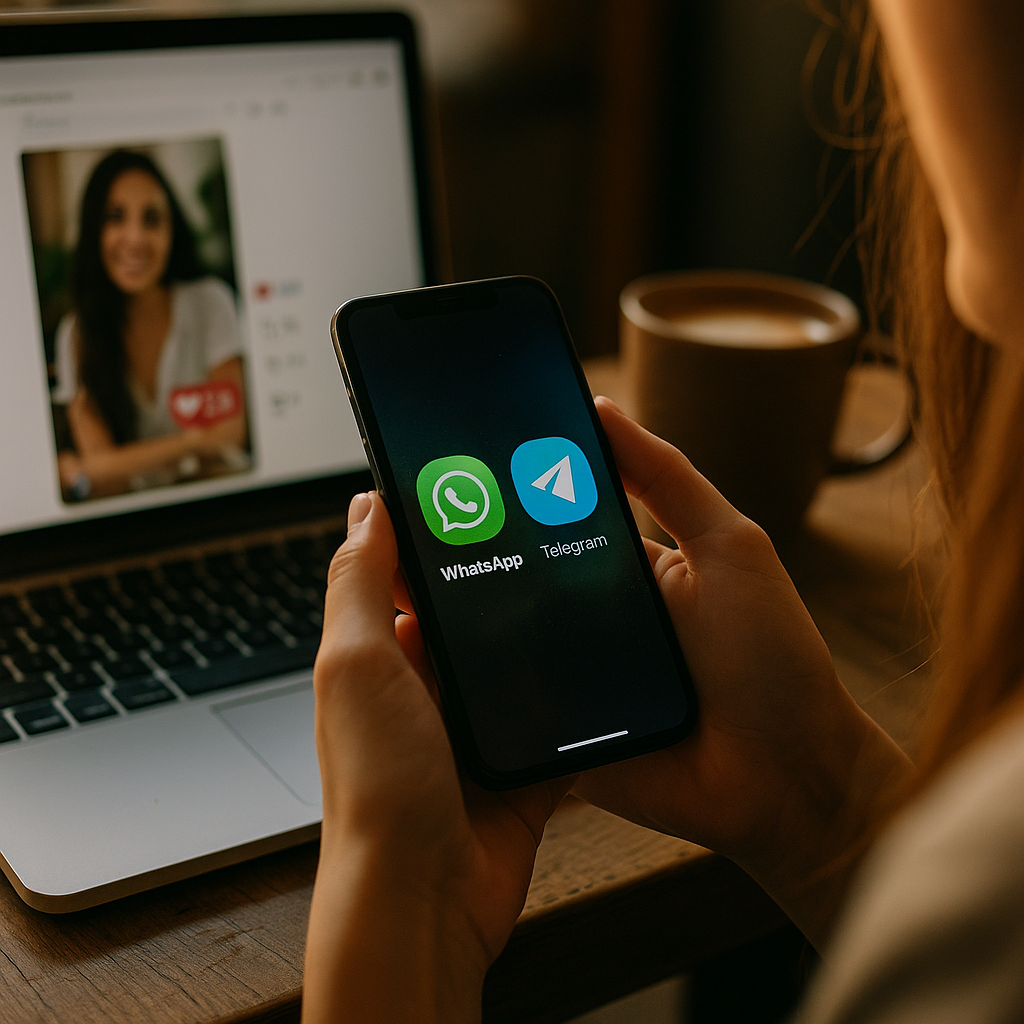WhatsApp and Telegram have rapidly emerged as untapped influencer marketing channels, quietly reshaping digital outreach in 2025. Brands seeking new frontiers are recognizing the immense potential of these messaging platforms. Wondering how to unlock direct, trusted engagement for your next campaign? Discover why this overlooked space could become your most impactful marketing asset.
Why WhatsApp and Telegram Are Influencer Marketing Game-Changers
Social media feeds are saturated, making it challenging for brands to break through the noise. WhatsApp and Telegram stand out as influencer marketing channels with notably high engagement rates. In 2025, WhatsApp boasts over two billion users, with Telegram surpassing 900 million. Both platforms center around real-time, personal communication, offering an authenticity and intimacy traditional networks struggle to deliver.
Unlike Instagram or TikTok, users opt-in to receive updates via groups, channels, and broadcast lists curated by creators they trust. This permission-based relationship leads to superior message visibility and loyalty. Influencers can send tailored content, exclusive offers, and even voice notes, building trust within a closed community. This environment dramatically increases conversion rates and deepens audience relationships—precisely what modern brands crave.
Building Authentic Connections via Messaging Apps
Today’s consumers seek genuine interactions. Through WhatsApp and Telegram influencer marketing, brands break free from the transactional tone often seen on open social networks. These apps empower creators to foster direct, ongoing conversations with their followers. This can mean behind-the-scenes content, product tips, or interactive Q&As—all handled within private chat spaces.
Messenger-based influencer marketing is innately personal: users often provide their phone numbers or join invite-only channels. This sense of exclusivity nurtures a community atmosphere. Influencers, in turn, act as trusted advisors, not just ad vehicles. This audience intimacy increases message credibility and drives higher action rates, as evidenced by multiple 2025 influencer case studies shared by top agencies. Brands can tap these dynamics to build lasting, high-value customer relationships.
Proven Strategies for Influencer Marketing on WhatsApp and Telegram
To succeed on WhatsApp and Telegram, it’s essential to embrace strategies tailored to their unique ecosystems. Here are current best practices for influencer-led campaigns on these messaging platforms:
- Leverage Exclusive Communities: Host invite-only groups or channels where influencers deliver branded content, special deals, or VIP insights.
- Micro-Content and Interactive Messaging: Send short videos, polls, or voice messages to spark real conversations and feedback.
- Utilize Broadcast Lists: Employ WhatsApp’s broadcast tools to push branded messages to large groups without compromising privacy.
- Limited-Time Offers: Drive urgency by releasing time-bound promos to loyal messaging subscribers, maximizing conversion potential.
- Co-creation: Collaborate with influencers to develop content that aligns with the channel audience’s interests, rather than just pushing ads.
Successful brands typically monitor performance via engagement metrics: open rates, click-throughs, and direct responses. These richer data points provide clarity on ROI, unlike traditional impression counts. This approach enhances campaign precision and adaptability.
Compliance and Privacy: Navigating Data Challenges in 2025
With increasing scrutiny on data privacy, brands must prioritize compliance when leveraging WhatsApp and Telegram for influencer marketing. Both platforms offer end-to-end encryption, granting private, secure environments for communication—a major advantage in the age of evolving digital regulations.
However, brands and influencers must strictly adhere to opt-in consent frameworks. Automated messages, personalized outreach, and data collection require clear user permissions. In 2025, leading brands work closely with experienced legal teams to ensure regulatory compliance. They also invest in robust moderation and reporting practices, safeguarding both the influencer’s and the audience’s trust. This ethical marketing approach not only protects brand reputation but also enhances long-term loyalty and growth.
Integrating WhatsApp and Telegram into Your Overall Marketing Mix
Incorporating WhatsApp and Telegram influencer campaigns into a broader strategy helps organizations reach audiences across multiple touchpoints. Forward-thinking marketers use messaging platforms to amplify existing content, gather real-time customer feedback, and funnel highly targeted leads to web stores or physical outlets.
Integration is seamless: both WhatsApp and Telegram offer APIs and third-party tools for handling large group communications, analytics, and CRM integration. Influencers can complement Instagram Stories or YouTube videos with exclusive updates or incentives delivered straight to subscribers’ mobile devices. This multi-channel orchestration gives brands a significant competitive edge in today’s fragmented digital landscape.
Early adopters across retail, fintech, and education have already demonstrated impressive returns, leading industry research highlights that messaging-based campaigns outperform traditional paid social by up to 65% in engagement and click-through rates in 2025. Investing now allows brands to establish first-mover advantage before these channels become saturated.
Conclusion: Unlocking Untapped Potential in 2025
WhatsApp and Telegram influencer marketing channels represent a powerful, underutilized resource for brands seeking direct, authentic audience connections in 2025. By prioritizing trust, exclusivity, and privacy, marketers can achieve unrivaled engagement and loyalty. Now is the time to invest—before these messaging platforms become the next mainstream influencer battleground.
FAQs about WhatsApp and Telegram Influencer Marketing
-
How do WhatsApp and Telegram differ from traditional social media for influencer marketing?
WhatsApp and Telegram offer direct, private communication. Influencer content reaches subscribers in real-time, often yielding much higher engagement than public social feeds.
-
Are campaigns on WhatsApp and Telegram compliant with privacy laws?
Yes, if conducted with clear user opt-in and adherence to current data privacy standards. Brands must ensure all messages are permission-based and transparent.
-
What types of brands benefit most from these channels?
Brands with a need for high-touch, personal communication—such as fintech, retail, education, or exclusive services—see the best results on WhatsApp and Telegram.
-
How do you track influencer campaign success on these platforms?
Track open rates, clicks, replies, and offer redemptions. Use built-in analytics and third-party integrations for deep performance insights.
-
Can small businesses leverage influencer marketing on WhatsApp and Telegram?
Absolutely. These platforms are ideal for small businesses seeking cost-effective, high-engagement outreach strategies, as campaigns can be highly targeted and personal.
